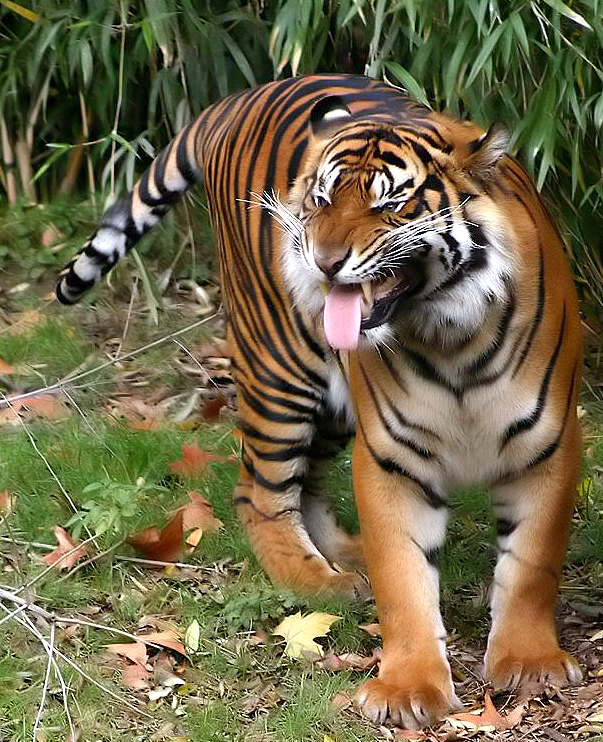
Welcome to a journey through the 12 cranial nerves! (If you want to read the first of the series and watch the video, go HERE).
This is my second of four newsletters on cranial nerve “0” and it’s recently re-discovered vomeronasal organ which sits inside your nostrils. This organ contributes, even if only subconsciously, to our sense of smell. Pheromones send messages about territory, sexual availability (sniff sniff) and which species you are.
The health benefits of breathing through your nose are a hot topic at the moment and mentioned on many mainstream health websites. Three main benefits of breathing through your nose are:
1) Increases oxygen in the bloodstream by up to 20%
2) Slows and deepens your breathing, enhancing a state of calm
3) Improves diaphragmatic motion and elasticity
Perhaps, if you are in touch with your subconscious pheromone receptor, you are less likely to wander into the tiger’s territory! But even if we’ve evolved out of that kind of sensitivity, these three benefits link into many other aspects of health and immunity.
I am an embodiment educator, so I’m much more interested in your felt, personal experience of breathing, and less interested in giving you a set of exercises to do or overwhelming you with science. I give you a prompt to explore a specific place, a specific nerve or organ, and invite you to notice if you use excess tension in your exploration. It’s part of my job to help you become aware of and let go of that tension so that you can get the full benefit of your exploration and make your life better, easier, and more attuned to the natural world.
Tension does not help us learn. Openness and ease does.
So don’t wait to read more! Right now, as you sit there, notice the sensation of the air inside your nostrils. Sniff. Rest attention there. Inquire and be curious – what if there was a layer to your sense of smell that was totally unconscious, mysterious, deeper than scent.
Let your face relax. Notice if your face, eyes, or mouth space are tensing as you breath in when you sniff, and let that tension go. See if you can let the roof of your mouth soften and open gently as the air comes in. Consider the skin of your upper lip, right under your nose – is it soft?
How does the rest of your body respond to this focus of attention?
The vomeronasal organ connects through its nerve to your limbic system – emotional regulation – and to subconscious likes and dislikes that your body responds to directly and easily. Attraction and repulsion. Unfortunately, many of us learn to ignore our body just to get through each crazy day. Our health is compromised when we disconnect from our bodies – and this nerve is a super easy way to return to yourself.
I’ve found I can tune into it anytime, anywhere. It helps me calm myself down during difficult conversations. It keeps my mind from wandering during meditation periods. I can do it when I’m walking or even as I’m writing this sentence. The softening of my mouth and face frees my neck and spine.
Don’t miss out on this simple pleasure! Try this first, before you go learning a bunch of exercises. Just integrate it into each day.
If you are motivated to learn more, Cranial nerve “0” and it’s organ, the vomeral or Jacobson’s organ, are still a bit of a mystery to science so it’s not easy to find accurate information. Lyall Watson’s entertaining book about it was not taken very seriously when it was first published, but more recent research is revealing that his speculations were connected to reality.
There really is an art to breathing and it’s relevant to our health and immune system now more than ever during this time of COVID. Just because western science hasn’t been able to explain certain phenomena doesn’t mean that there is no explanation, or that we can’t trust our bodies when they tell us something makes us feel good.
I feel moved to mention that India, the source of Yoga and much of what we know about breathing, is in great need of our help. I am not a yoga teacher, but my dear friend Monisha Raja is and she is hosting this amazing benefit to raise funds for COVID relief and to raise up Southeast Asian Yoga teachers who are often not given the exposure they deserve.
Monisha has been teaching Yoga for COVID survivors and survived COVID herself. She knows what she’s talking about! The schedule will soon be released, please register if you feel moved to help and to learn from these amazing teachers.
